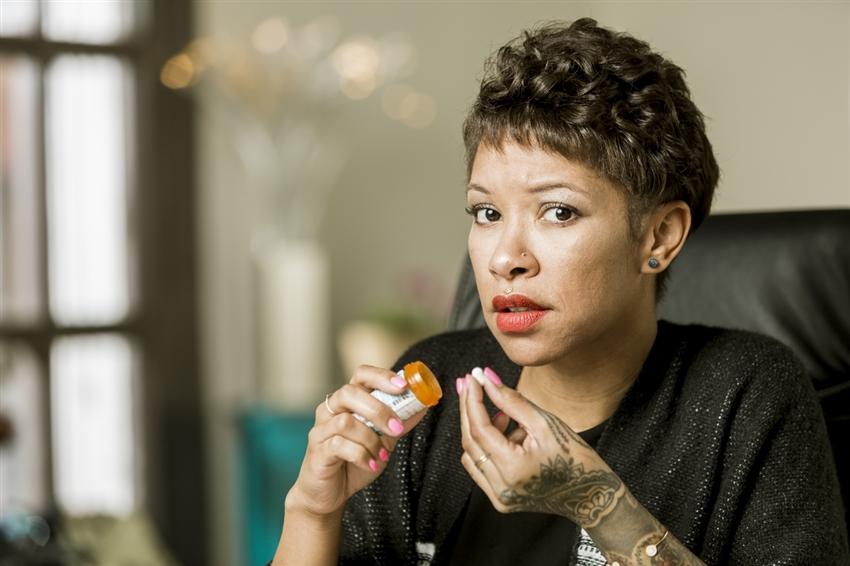Treating Opioid Addiction

Treating opioid addiction begins with admitting there's a problem
If you've gotten hooked on painkillers (opioid medication), it might not be so easy to get off of them. Whether you or someone close to you started taking opioids after surgery or an injury, or you've gotten the medication from someone else, for some people the pain-relieving feeling is so euphoric that after just one or two doses, they become completely dependent and wanting more. And for some of those people, that dependency — of needing to have the drug in the body to feel comfortable — turns into full-blown opioid addiction.
Talk to us - click to call 1.888.CARE.898 (227.3898)
Not ready to make the call? Contact us online.
Opioid addiction is often characterized by:
- Misuse or overuse of the drug (if you're taking opioids, be sure you know how to prevent misuse)
- Mixing it with other drugs or alcohol for heightened effect
- Going to different prescribers to try to get more
- Crushing the pills so it can be snorted, injected or mixed with other substances
- Mentally craving or obsessing about the next dose of opioids
Going “cold turkey” to get off of opioids is not an option for most people when it comes to treating opioid addiction. The withdrawal symptoms can be severe as the drug leaves the body, which can take up to 10 days. And many people who have reached this stage of addiction to opioids require medical oversight, which may include medication-assisted treatment (MAT), when appropriate, as well as drug addiction treatment and support.
If you're concerned about your own opioid addiction or that of someone you love, then it's time to get treatment.
Medication-assisted treatment for opioid addiction
There is a misconception that medication-assisted treatment (MAT) for opioid addiction is merely substituting one drug for another and therefore creating another drug dependency. When medically managed and taken responsibly, however, MAT for opioid addiction is a highly effective way of helping people gently wean off of the effects of opioids and begin to put in place healthier habits and behaviors.
Whether you're receiving inpatient or outpatient MAT for opioid addiction, you'll first have a physical exam that includes a drug test. Depending on the results of your exam and your particular addiction history, the medications prescribed may include:
- Buprenorphine (Subutex, Suboxone) – reduces opioid cravings; tricks brain into thinking it's still getting opioid, but without the high
- Methadone – reduces opioid cravings; tricks brain into thinking it's still getting opioid, but without the high
- Naltrexone – blocks the opioid's effects on the brain so there is no pleasurable experience for the user; often used to help prevent relapse
Introducing Suboxone or Naltrexone to the body too soon can worsen withdrawal symptoms so you will be carefully overseen by a health care provider for any adverse effects when you first begin MAT for opioid addiction.
Right away
Methadone
Early withdrawal
Buprenorphine
After seven to 10 days
Naltrexone
Ongoing if needed
Each is safe to take for as long as needed, even for many years.
During your initial assessment your provider will discuss your treatment choices and any rules that must be followed in order for you to stay in treatment. They'll also discuss what to expect next.
Naloxone for opioid overdose
The United States Surgeon General urges Americans to carry the lifesaving medication, Narcan (naloxone), which can reverse the effects of an opioid overdose. Narcan is used regularly by first responders such as police officers and EMTs to save the lives of people who have overdosed on heroin or opioid medications. The PA Department of Health has approved a standing prescription for all residents of the state of Pennsylvania to obtain this medication, with the recommendation of having Narcan in your home if your loved one has a history of opioid use. The drug is widely available at most pharmacies — with and without a prescription — and can be used as a nasal spray or in an injectable form, similar to an Epi-pen. Please contact Mirmont Treatment Center for additional information.

Treating opioid addiction and managing pain
Fear of pain is a primary concern for many people who've become addicted to opioids. After all, pain may be the reason you started taking pills in the first place. But based on what we now understand about opioid addiction and overuse in our culture, there are many other ways that providers are treating opioid addiction while still helping people manage chronic pain without the drugs.
- Holistic pain management is one example, with therapies such as acupressure, reiki, yoga and mindfulness-based stress reduction, such as what is offered at Mirmont Treatment Center, which is part of Main Line Health, located in Media, Pennsylvania, just outside of Philadelphia.
- Cognitive behavioral therapy is another method that helps retrain the brain's perception of pain. It can also help improve other areas that overlap with the experience of pain such as mood and sleep.
- Non-opioid drugs may help in some instances, such as certain antidepressants, anti-seizure medications, or anti-anxiety medications- — all of which alter the brain's perception of pain.
There are also medical devices that block pain signals to the brain; for example, a spinal cord stimulator that is implanted via a noninvasive surgical procedure.
Treating opioid addiction all starts with admitting that there's a problem — and understanding that addiction is a disease just like diabetes or cancer. If you were concerned about your body and disease, you would get treated by a medical doctor. If you are concerned about your body's addiction to opioids, get treated by opioid addiction specialists like the ones at Mirmont Treatment Center.